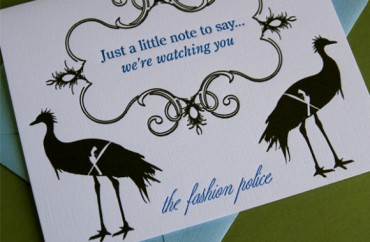
‘Virtue is hard. Clothing is easy’
College students often shuffle into class with tousled hair, stained polos and flip-flops so worn out they barely qualify as footwear.
But not at The King’s College in New York City, a Christian liberal arts school that retains that most quaint of college rules: the dress code.
The school’s 2014-2015 student handbook requires student to wear business casual, defined as “the comfortably relaxed version of traditional business attire,” from 8:30 a.m. to 5:30 p.m. and to all classes, “regardless of meeting time.”
Repeated violations could land a student in front of the Honor Council, which handles violations of the honor code that all students must sign upon enrollment. Potential punishments include suspension, removal from student housing and even expulsion.
HT Elevator Mirror Selfie #wheresmurphy
Posted by Michael Sheetz on Sunday, October 26, 2014
Student concern about the code is so great that The King’s Council, a student governing body, discussed measures to help students comply at its final meeting of the school year – including bringing in a fashion consultant.
Yet according to administrators, violations have never landed a student before the Honor Council. The code gives wide leeway to faculty to enforce, and by and large, they aren’t.
Which raises the question: Is the dress code just a paper tiger?
It’s cruel to be kind
Forbidden items include the staples of the average student’s wardrobe: t-shirts, jeans, “anything too tight or revealing” and “torn, wrinkled or dirty clothing.”
College athletes are permitted to wear official team uniforms when they don’t have time to change between practices or games and classes.
And beware, any non-athlete trying to evade this rule: Professors can count students not wearing business casual as absent from class, and students who miss a certain number of classes may be “administratively withdrawn” without a refund.
#doitforthecalendar
Posted by Michael Sheetz on Wednesday, November 5, 2014
But only one professor is notorious among students for enforcing the dress code: Jared Pincin, who teaches economics.
It’s for their own good, Pincin told The College Fix in an email: “It [is] better to learn how to dress now when the consequences are smaller than lose a job or not secure a job because of not knowing how to dress.”
He said he personally knows people who faced firing unless they dressed more professionally and has talked to employers who refused to hire an applicant because of how they were dressed in an interview.
Joshua Blander, a philosophy professor, is not a fan of the dress code.
“I’ve heard it said that it helps define our community, but I find that position highly irregular” because it emphasizes “appearances” over the development of “Christian character and a distinctively Christian vision of the world,” Blander told The Fix in an email.
The code suggests to students that “particular attire is as important as understanding, careful thinking, and the other crucial values of our Christian educational community.”
One of Blander’s own philosophy colleagues, however, strongly disagrees.
The dress code helps King’s “accomplish its goal of forming the souls of its students,” David Talcott told The Fix in an email. “It is a gnostic heresy to think our bodies have nothing to do with our souls. How we look and dress affects us, whether for good or ill.”
The ‘jegging’ conundrum
The King’s Council, the student governing body, kicked around ideas for avoiding gnostic heresy at its May 7 meeting, according to its minutes.
Before settling on a dress code committee that will submit a “clear definition” of business casual to the administration, members “jokingly brought up points from previous meetings about what ‘jeggings’ are and whether or not they are appropriate,” the minutes state.
“House” representatives argued whether the council should ascertain the “spirit” of the code rather than a detailed definition. The student body president said students believe professors should enforce the code, and professors believe students should police each other.
Certain majors are associated with more or less fidelity to the dress code. “Media, Culture and the Arts” students are known for being the most casual, while business majors often come to class in suits and heels.
In student interviews with The Fix, most said they support the code. Peter Murphy said that it is meant to “create an environment of respect,” and Megan Ristine said the code “sets us up for success in the real world.”
“Even though it can be a burden at times, I do think it is good for us,” said Darien Olesen in an email.
This year for Homecoming, you can register only for the events you want to attend: http://s.tkc.edu/HmCmng14.
Posted by The King’s College on Tuesday, October 21, 2014
Those supportive views may be due to the code’s general lack of enforcement and its status as a “joke” – a term used by multiple students.
Aaron Mikat said in an email that he has “never heard a professor mention” the code. “The teacher [giving] an absent thing never happens,” Murphy said.
“Everyone’s afraid to tell someone they barely know that their clothes don’t fit the community’s standards, especially when taking the dress code seriously is a joke,” Mikat said.
Ristine admitted that she has “gotten away with things that probably would not be considered true business casual because I know I won’t be called out.”
Waiting for an ‘unrepentant rogue’ to test the system
Enforcement isn’t the point, according to Dean of Students David Leedy.
“It is a vital aspect of our campus culture and reflects our mission,” Leedy said in an email. “Dressing down takes no skill whatsoever.”
Though “in theory” students can get hauled before the Honor Council, “that has never happened” because the school has never produced an “unrepentant rogue,” Leedy said. “The typical offender dresses out of code on occasion – and tends to responds [sic] well to confrontation.”
Posted by Gregory Alan Thornbury on Sunday, October 13, 2013
Students should obey rules even if they aren’t enforced consistently, Associate Dean of Students Shelli Cline told The Fix.
It’s the “right thing to do, if for no other reason that it is a College policy and a part of the College’s culture,” because it reflects “character, not clothes,” she said in an email.
Cline said the furthest punishments had gone was house advisers meeting with their members, “but I don’t recall anyone being sanctioned.”
Students are “missing the point of maturity” by requiring faculty to call them out, Pincin said. “Be faithful in little things. Have integrity even when no one is watching or listening.”
This attitude assumes students are too dumb to take direction in the workplace, Blander retorted.
“If you are offered a job, you can ask what you are expected to wear, and go buy the clothes,” he said.
“What *is* difficult is learning to be kind to one’s rude, overbearing colleagues, being gracious with those who disagree with us, exhibiting toughmindedness when others challenge our beliefs,” Blander said in an email.
“Virtue is hard. Clothing is easy.”
Like The College Fix on Facebook / Follow us on Twitter
IMAGE: Sarah Ridgley/Flickr
Like The College Fix on Facebook / Follow us on Twitter





Please join the conversation about our stories on Facebook, Twitter, Instagram, Reddit, MeWe, Rumble, Gab, Minds and Gettr.